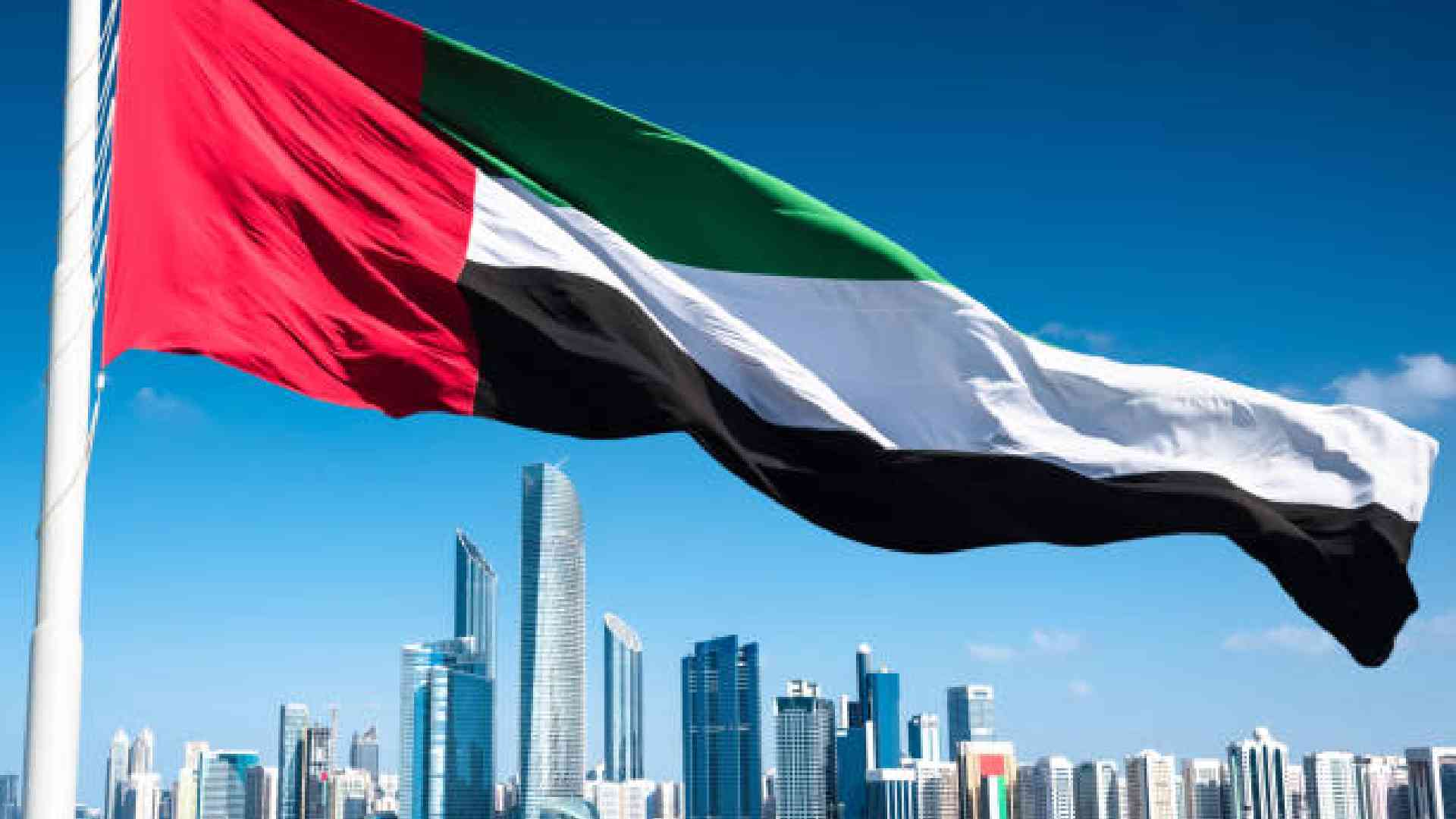Dubai Postal Code: Everything You Need to Know
Introduction
Dubai’s distinctive approach to postal addressing sets it apart from cities worldwide. Unlike most global metropolises that rely on traditional postal codes, Dubai operates without a conventional zip code system. This unique characteristic reflects the city’s rapid growth and innovative spirit in managing mail delivery services.
Understanding Dubai’s postal addressing system proves essential for:
- Residents seeking reliable mail delivery
- Businesses managing correspondence and shipments
- International senders ensuring accurate package delivery
The absence of standard postal codes has led Dubai to develop alternative solutions, combining traditional P.O. Box systems with cutting-edge technology. This guide explores Dubai’s postal infrastructure, addressing methods, and practical solutions for seamless mail delivery in this dynamic city.
You’ll discover:
- The mechanics of Dubai’s P.O. Box system
- Modern technological alternatives to postal codes
- Best practices for sending and receiving mail
- Solutions for international shipping challenges
This comprehensive overview equips you with essential knowledge to navigate Dubai’s unique postal landscape effectively.
The P.O. Box System in Dubai
Dubai’s P.O. Box system is the main way mail is delivered throughout the emirate. Instead of using traditional postal codes like other countries, each P.O. Box acts as a unique identifier.
How P.O. Boxes Work in Dubai:
- Each box is assigned a distinctive number
- Mail is sorted at central postal facilities
- Recipients collect mail from their designated boxes
- Notifications for large packages arrive through SMS
Renting a P.O. Box:
- Visit an Emirates Post office
- Present valid UAE ID or trade license
- Choose between individual or corporate subscription
- Pay annual rental fees (starting from AED 200)
- Receive P.O. Box number and keys
However, it’s important to note that due to the popularity of this system, finding available P.O. Boxes can sometimes be challenging.
The P.O. Box system is quite different from traditional postal codes. While zip codes are used to divide geographical areas for efficient mail delivery, Dubai’s P.O. Boxes create specific collection points for each subscriber. This system reflects the rapid urban development of Dubai and its unique architectural landscape.
P.O. Box vs Traditional Postal Systems:
| Traditional Postal Systems Dubai P.O. Box System Geographic-based coding | Individual box numbers |
| Door-to-door delivery | Centralized collection points |
| Automated sorting by region | Manual sorting processes |
| Multiple addresses per code | One box per subscriber |
Emirates Post has dedicated facilities all over Dubai that house thousands of P.O. Boxes. These facilities have extended operating hours to accommodate the city’s dynamic lifestyle and ensure accessibility for working professionals. The efficiency of this system depends on subscribers correctly citing their box numbers and regularly collecting their mail.
Challenges with Relying Solely on P.O. Boxes
The P.O. Box system in Dubai presents several notable challenges for residents and businesses:
1. Limited Accessibility
- Physical visits required to collect mail
- Restricted collection hours
- Distance from residential areas
- Time-consuming trips during peak hours
2. Business Operations Impact
- Delayed receipt of time-sensitive documents
- Multiple P.O. Boxes needed for different locations
- Staff resources allocated for mail collection
- Storage limitations for large parcels
3. Courier Service Complications
- Inability to deliver directly to residential addresses
- Additional coordination required for home deliveries
- Extended delivery times
- Higher costs for alternative delivery solutions
4. International Shipping Hurdles
- Confusion with address formats
- Missing postal codes trigger automated system errors
- Potential delays in customs clearance
- Risk of returned packages due to incomplete addressing
The absence of a standardized postal code system creates particular challenges for e-commerce operations. Online retailers struggle with address validation systems that require postal codes, leading to order processing delays. Delivery services must rely on detailed written directions, landmarks, or building names to locate destinations – a process that increases delivery times and operational costs.
Local businesses face additional pressure during peak seasons when P.O. Box facilities experience high traffic volumes. The system’s fixed capacity limits scalability during high-demand periods, affecting both mail collection efficiency and storage availability.
Exploring Alternatives: GIS Technology and Makani System
Dubai’s innovative approach to addressing has led to the implementation of sophisticated GIS-based systems. The city’s rapid development demanded a more precise location identification method, resulting in the creation of the Makani system.
The Makani system assigns a unique 10-digit number to every building and entrance in Dubai. This digital addressing solution uses Geographic Information System (GIS) technology to pinpoint locations with remarkable accuracy – down to one meter. Each Makani number represents:
- First 2 digits: District sector
- Middle 6 digits: Location coordinates
- Last 2 digits: Building unit or entrance
The system’s integration with digital maps creates a reliable navigation tool for:
- Emergency services
- Delivery companies
- Taxi services
- Government entities
Unlike traditional postal codes that divide cities into broad zones, Makani numbers provide exact coordinates. The system operates through a user-friendly mobile app, allowing users to:
- Share their precise location
- Navigate to specific buildings
- Find nearby services
- Save favorite locations
The Makani system has revolutionized Dubai’s addressing infrastructure by bridging the gap between physical addresses and digital navigation. This technology serves as a practical alternative to conventional postal codes, offering enhanced accuracy and accessibility for both residents and visitors.
The Role of Technology in Addressing Challenges
Digital technology is changing how people find addresses in Dubai. Instead of relying on traditional postal codes, which are not used in the city, advanced solutions are being implemented to make locating places easier. One such solution is the use of sophisticated GPS tracking systems that work in conjunction with mobile applications. These technologies allow users to pinpoint exact locations with an accuracy of just a few meters.
Key Digital Solutions:
- Smart Address Verification: AI-powered systems validate physical addresses against digital databases
- Real-time Route Optimization: Delivery vehicles use dynamic routing algorithms to find the most efficient paths
- Mobile Navigation Apps: Custom-built applications help drivers locate destinations using landmarks and building codes
- Digital Twin Technology: 3D mapping creates virtual representations of Dubai’s neighborhoods
The success of these digital solutions relies heavily on the support provided by the Dubai Municipality’s digital infrastructure. This infrastructure includes:
- High-speed 5G networks
- IoT sensors throughout the city
- Integrated traffic management systems
- Smart city platforms
Local businesses are also taking advantage of these technological advancements to improve their operations. Some ways in which they are doing this include:
- QR code-based location sharing
- Digital address verification APIs
- Automated dispatch systems
- Live tracking interfaces
As a result of these efforts, delivery success rates across Dubai’s urban landscape have reached an impressive 98%. Courier companies have reported significant improvements in their delivery times as well, with an average reduction of 45 minutes per route thanks to the implementation of smart navigation tools.
Furthermore, the integration of artificial intelligence with mapping systems has created a self-learning network that continuously enhances address accuracy and delivery efficiency throughout Dubai’s rapidly expanding metropolitan area.
International Shipping Considerations: Navigating Without Postal Codes
International shippers adapt their standard procedures when handling shipments to Dubai through specific address formatting requirements. Major courier services like DHL, FedEx, and UPS utilize customized online forms that accommodate Dubai’s unique addressing system.
Key shipping requirements for Dubai-bound packages include:
- Building name and number
- Street name
- Area/district
- Emirate (Dubai)
- United Arab Emirates
- P.O. Box number (if applicable)
- Contact phone number (mandatory)
Many international shipping platforms automatically adjust their address input fields when “Dubai” or “UAE” is selected as the destination. These systems often replace the postal code field with alternative location identifiers like area codes or district names. International addressing requirements are crucial for ensuring successful delivery.
For shipments from Dubai, senders must ensure they include the destination country’s postal code requirements. Local courier services assist Dubai-based customers by providing country-specific address formatting guidelines and verification tools to prevent delivery delays.
The absence of traditional postal codes hasn’t hindered Dubai’s international shipping capabilities. The city’s robust logistics infrastructure compensates through precise physical addressing and mandatory contact information requirements. Utilizing platforms such as ShipStation can further streamline the international shipping process from Dubai by ensuring compliance with these unique addressing standards.
Best Practices for Successful Deliveries to Dubai Residents
Securing successful deliveries in Dubai requires attention to detail when providing address information. A complete physical address should include:
- Building name and number
- Floor and unit/apartment number
- Street name or number
- Nearest landmark
- Area or community name
- Emirates (Dubai)
- Contact phone number
Pro Tips for Address Accuracy:
- Include both English and Arabic building names when possible
- Specify entrance numbers for large buildings
- Add GPS coordinates for complex locations
- Mention distinguishing features (color, signage)
- Save delivery instructions in digital format for easy sharing
The Makani number, when available, serves as a valuable addition to physical addresses. Residents can verify their exact address format through the Dubai Municipality website or Emirates Post platforms. Maintaining updated contact information with courier services creates a reliable delivery profile, reducing the likelihood of missed or delayed deliveries in Dubai’s unique addressing system.
Conclusion
Dubai’s unique mailing system reflects its rapid growth and technological advancement. The lack of traditional postal codes has led to innovative solutions, such as P.O. boxes and the advanced Makani system. These adaptations show Dubai’s ability to create efficient alternatives to traditional addressing methods.
The future of Dubai’s postal system indicates a move towards greater digital integration. Smart addressing technologies, AI-powered delivery systems, and improved GIS mapping suggest a shift from physical mail handling to a more automated and precise delivery network. This evolution aligns with Dubai’s vision as a smart city, where technology fills gaps in traditional infrastructure.
The city’s distinctive approach to postal addressing serves as an example for emerging metropolises looking for alternative solutions to conventional mailing systems.
FAQs (Frequently Asked Questions)
What is the postal code system in Dubai?
Dubai does not utilize a traditional postal code system like many other countries. Instead, it operates primarily on a P.O. Box system, where residents and businesses rent a P.O. Box to receive their mail.
How does the P.O. Box system work in Dubai?
In Dubai, individuals and businesses can rent a P.O. Box from the Emirates Post. Mail is delivered directly to these boxes rather than to physical addresses, requiring users to visit their P.O. Box location to collect their mail.
What challenges do residents face when using P.O. Boxes for mail delivery in Dubai?
Residents relying solely on P.O. Boxes may encounter delivery issues, such as delays or confusion for international senders who are unfamiliar with the system. This can lead to misdelivery or lost packages.
What is the Makani system and how does it help with addressing in Dubai?
The Makani system is a GIS-based addressing solution that assigns unique numbers to every building in Dubai, facilitating easier navigation and delivery without the need for traditional postal codes.
How does technology improve mailing and delivery efficiency in Dubai?
Technology enhances mailing efficiency through digital addressing systems, mobile apps, and digital maps that help locate addresses accurately, making it easier for couriers and residents to navigate the city.
What best practices should be followed for successful deliveries to Dubai residents?
To ensure smooth delivery experiences in Dubai, it’s crucial to provide complete physical addresses along with any relevant details such as landmarks or building names when sending mail or packages.











Post Comment